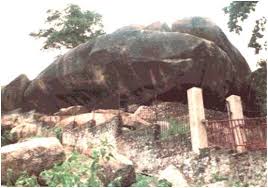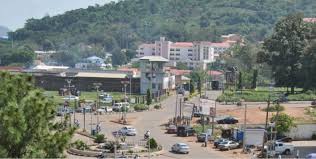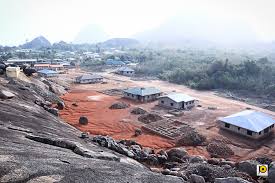Ekiti is a state in western Nigeria, declared a state on 1 October 1996 alongside five others by the military under the dictatorship of General Sani Abacha. The state, carved out of the territory of old Ondo State, covers the former twelve local government areas that made up the Ekiti Zone of old Ondo State.

On creation, it had sixteen Local Government Areas (LGAs), having had an additional four carved out of the old ones. Ekiti State is one of the thirty-six states (Federal Capital Territory(Nigeria) ) that constitute Nigeria. Ekiti State is reputed to have produced the highest number of professors in Nigeria.The Ekitis, whose ancestors migrate from Ile-Ife as a people, form one of the largest ehnic groups in Yorubaland. Ekitis are culturally homogeneous and the speak a dialect of Yoruba language known as Ekiti. The homogeneous nature of Ekiti confers on the state some uniqueness among the states of the federation.

Slight differences are noticeable in the Ekiti dialect of the Yoruba language spoken by the people. This is informed and influenced by their spatial locations, especially the border communities to other states. For example the people of Ado local government area do not speak exactly the same dialect with the people of Ijero local government area, while the people of Ikole area speak something different from the people of Ikere area.

The communities influenced by their locations include Otun (Moba land) that speaks a dialect close to the one spoken by the Igbominas in Kwara State. The people of Okeako, Irele, Omuo-Oke speaks a dialect similar to that of Ijumus in Kwara/Kogi States. The people of Ekiti West and Efon-Alaaye local government areas, that is, the Efon Alaaye and Okemesi communities speak a similar dialect to that of Ijesas of Osun State.

However , part of the uniqueness of the Ekitis is that where ever is your own part of the state, you will understand well, when the other Ekiti man/woman speaks, inspite of the dialectal variations. in addition, all towns in Ekiti State take a common suffix, "Ekiti," after their names. the main staple food of the people of Ekiti is pounded yam with vegetable soup.

Ekiti as a people settle in nucleus urban patterns, well linked with network of roads. The State can boast of more than 127 large and small, ancient and modern towns, located on hills and valleys that characterise the state from which the confinement takes its name, Ekiti, that is, 'Okiti' meaning hill. Ekiti State, apart from the fact that it is the only state with a warm spring in Nigeria is the watershed and source of some prominent rivers such as Ero, Ose, Ogbese and others.
The people of Ekiti are hard-working , upright, studious and very articulate. Ekiti men are predominantly farmers but women engage in trading.
On creation, it had sixteen Local Government Areas (LGAs), having had an additional four carved out of the old ones. Ekiti State is one of the thirty-six states (Federal Capital Territory(Nigeria) ) that constitute Nigeria. Ekiti State is reputed to have produced the highest number of professors in Nigeria.The Ekitis, whose ancestors migrate from Ile-Ife as a people, form one of the largest ehnic groups in Yorubaland. Ekitis are culturally homogeneous and the speak a dialect of Yoruba language known as Ekiti. The homogeneous nature of Ekiti confers on the state some uniqueness among the states of the federation.
Slight differences are noticeable in the Ekiti dialect of the Yoruba language spoken by the people. This is informed and influenced by their spatial locations, especially the border communities to other states. For example the people of Ado local government area do not speak exactly the same dialect with the people of Ijero local government area, while the people of Ikole area speak something different from the people of Ikere area.
The communities influenced by their locations include Otun (Moba land) that speaks a dialect close to the one spoken by the Igbominas in Kwara State. The people of Okeako, Irele, Omuo-Oke speaks a dialect similar to that of Ijumus in Kwara/Kogi States. The people of Ekiti West and Efon-Alaaye local government areas, that is, the Efon Alaaye and Okemesi communities speak a similar dialect to that of Ijesas of Osun State.
However , part of the uniqueness of the Ekitis is that where ever is your own part of the state, you will understand well, when the other Ekiti man/woman speaks, inspite of the dialectal variations. in addition, all towns in Ekiti State take a common suffix, "Ekiti," after their names. the main staple food of the people of Ekiti is pounded yam with vegetable soup.
Ekiti as a people settle in nucleus urban patterns, well linked with network of roads. The State can boast of more than 127 large and small, ancient and modern towns, located on hills and valleys that characterise the state from which the confinement takes its name, Ekiti, that is, 'Okiti' meaning hill. Ekiti State, apart from the fact that it is the only state with a warm spring in Nigeria is the watershed and source of some prominent rivers such as Ero, Ose, Ogbese and others.
The people of Ekiti are hard-working , upright, studious and very articulate. Ekiti men are predominantly farmers but women engage in trading.

No comments:
Post a Comment